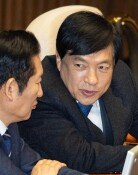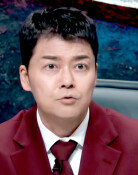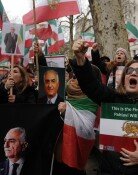[Opinion] Thoughts on Leadership
[Opinion] Thoughts on Leadership
Posted January. 02, 2005 22:40,
After spending an introspective year-end we greet a hopeful New Year. Where should we find hope? Who will give us hope? The more complex and uncertain the world becomes, the greater our interest in leadership, for we would be desperately in need of the ability of a leader who can keep the order and set a vision. Of course, leadership is not just the assignment of a few politicians. Current literature on leadership mostly deals with corporate management. This probably proves the significance of the economy in the real world.
For example, there is a servant leadership model, and some sources even look for the secret of leadership in Santa Claus. Also, Genghis Khan clearly suggests rules for 21st century management strategies. Principle-based leaders, who believe the only failure comes from not learning anything and shrewdly manage themselves, also catch the eye. They diligently learn, value trust, use synergy, and live a balanced life. These are guidelines worth considering.
However, corporate management and national management are similar yet different. The core difference in the two types of leadership, which are contrasted by privacy and publicity, is in transcendence. In order to transcend his selfishness and political interests, a politician is constantly forced to stay awake and cultivate himself. Since the degree and substance of self-sacrifice is different, and the standards for making right judgments under specific situations are so complicated, the conditions for political leadership cannot be presented simply and clearly. Therefore some even say leadership on a national scale is based on luck. This shows how difficult it is to cultivate leaders who can run a nation.
In the Governmental Duty Evaluation Report, President Roh Moo-hyun emphasized the point that the criterion in appointing officials is comprehensive leadership. Leadership is basically the synthesis of various qualities. The problem lies in where the priorities should be. Has our society successfully developed leadership that overcomes personal, political, and ministerial interests to seek common ground? If not, let us try from now on. Let us include the excellence educational plan, suggested by the Ministry of Education and Human Resources Development, in our leadership education. Should we not seek hope in a leadership education that fosters neutral judgment and teaches a public mind?
Ryu Hong-lim, Guest Editorial Writer, Professor of Political Science at Seoul National University






![“잠만 자면 입이 바싹바싹”…잠들기 전에 이것 체크해야 [알쓸톡]](https://dimg.donga.com/c/138/175/90/1/wps/NEWS/IMAGE/2026/02/23/133404749.3.jpg)
